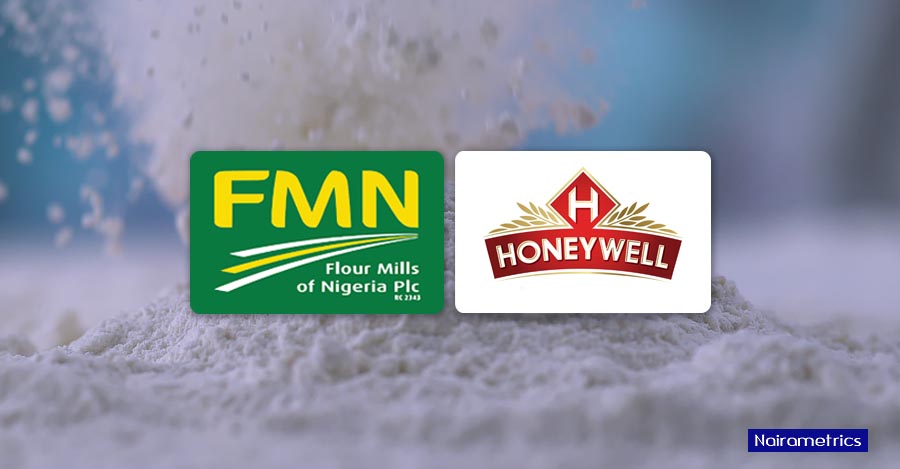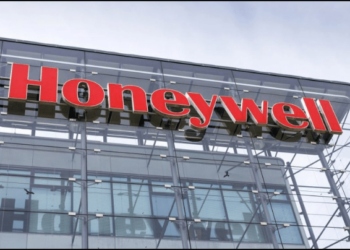For investors in Nigeria’s consumer goods sector, Honeywell Flour Mills (HONYFLOUR) has been the standout performer over the past 15 months; currently, the best-performing consumer goods sector and the fourth best on the NGX.
In 2024, Honeywell Flour Mills’s share price jumped by 95%, significantly outperforming the consumer goods sector index, which rose by 54.44% over the same period.
The strong momentum has continued into 2025, with the stock gaining another 95% so far this year, reaching a 52-week high of N14 on February 14 before pulling back slightly.
The broader sector has also improved, with 14 gainers, two unchanged stocks, and four decliners as of the close of trading on March 18, 2025; an improvement from 2024’s nine gainers, four unchanged, and seven decliners.
For investors, this 95% gain means that an initial investment at the start of the year would have nearly doubled in value.
For instance, a N1 million investment in HONYFLOUR would now be worth N1.95 million.
Why is HONYFLOUR surging?
Honeywell Flour Mills’ stock rally appears to be underpinned by its financial turnaround. After recording pre-tax losses of N9.54 billion in the 2023 financial year and N8.60 billion in the 2024 financial year, the company has returned to profitability.
In the first nine months of the 2025 financial year, which ends in March 2025, it reported a pre-tax profit of N12.28 billion a sharp reversal from the N8.83 billion loss in the same period the prior year
What changed? A steep drop in net finance costs. In the 2024 financial year (ended March 31, 2024), FX losses of N25 billion and interest expenses of N11 billion wiped out operating profits, resulting in another loss.
However, in the first nine months of the 2025 financial year, FX losses narrowed to N8.56 billion, while interest expenses declined further. This allowed N27 billion in operating profit to flow through to the bottom line, marking a significant turnaround.
Revenue growth has also been a catalyst. Sales surged 123% YoY to N277.06 billion in the first nine months of the 2025 financial year, already 47% higher than full-year 2024 revenue of N188 billion, driven more by Apapa manufacturing activities.
The Apapa segment manufactures Flour, Semo and Wheat meal, while Sagamu segment manufactures Noodles and Pasta respectively.
Areas of concern
Despite the financial recovery, investors should be mindful of risks, especially the stock’s low free float.
Out of 7.93 billion total shares, Flour Mills of Nigeria Plc (through its subsidiaries) controls 85.54% (6.87 billion shares). This leaves only 1.15 billion shares available for public trading.
Why does this matter?
With fewer shares available for trading, even small buy orders can push prices higher, increasing volatility.
The stock’s low beta of 0.4130 suggests it does not move in sync with the broader market, which aligns with the fact the share price rally could be influenced by other factors like the relatively free float.
Additionally, entry and exit could be challenging, particularly for investors trading in large volumes.
What should investors do?
For existing shareholders, holding makes sense given the company’s turnaround and strong price momentum.
- For new investors, buying at current levels carries risk, as the stock’s rally appears driven more by supply constraints than pure fundamentals.
- Minority shareholders, in particular, should be mindful of their position. With Flour Mills of Nigeria Plc controlling 85.54% of the company, decision-making power is highly concentrated. This means strategic moves, such as a potential buyout or delisting, could happen with limited influence from minority investors.
- Overall, if the stock price remains elevated without matching earnings growth, locking in some profits (partial sell) could be a smart move. However, if the company sustains its recovery, holding long-term may still offer value.
- Given Nigeria’s dynamic market, momentum can shift quickly. Investors should carefully weigh the opportunities against the risks and remain prepared for sudden changes.




















